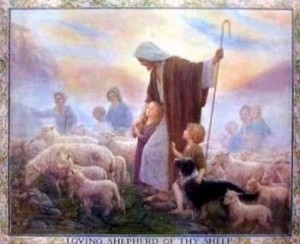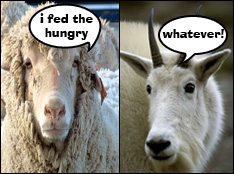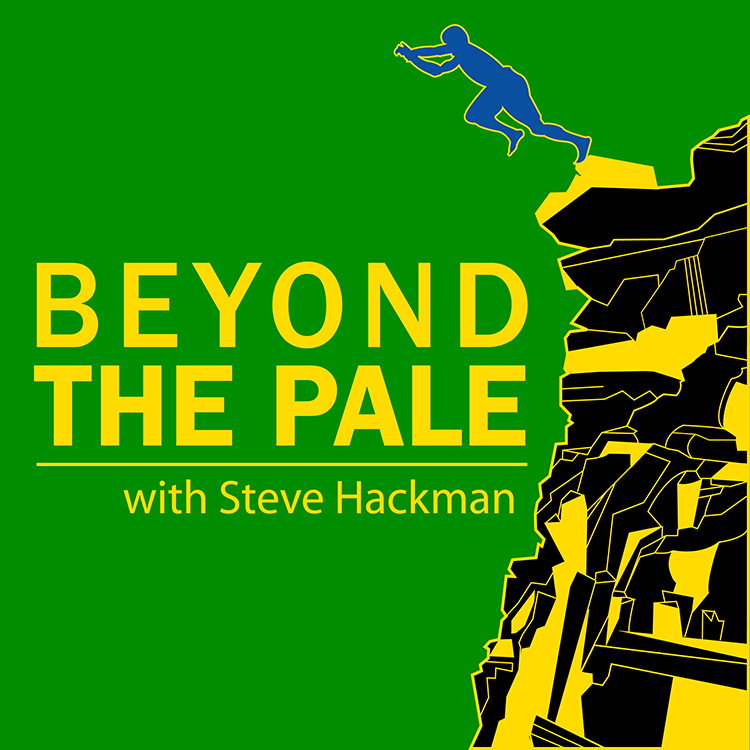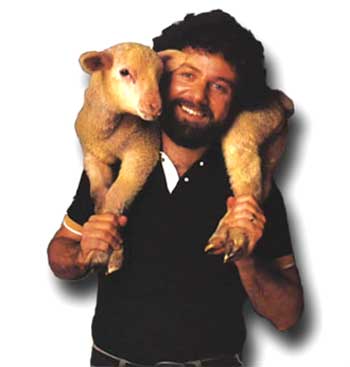What Does It Mean To Be Saved? Part 2
 In part 1 of this series I looked at Jesus declaring salvation to Zacchaeus’ house after a meal at the chief tax collector’s house. In part 2 we’ll take a look at Jesus’ parable of the Sheep and the Goats.
In part 1 of this series I looked at Jesus declaring salvation to Zacchaeus’ house after a meal at the chief tax collector’s house. In part 2 we’ll take a look at Jesus’ parable of the Sheep and the Goats.
“When the Son of Man comes in his glory, and all the angels with him, he will sit on his glorious throne. All the nations will be gathered before him, and he will separate the people one from another as a shepherd separates the sheep from the goats. He will put the sheep on his right and the goats on his left.
“Then the King will say to those on his right, ‘Come, you who are blessed by my Father; take your inheritance, the kingdom prepared for you since the creation of the world. For I was hungry and you gave me something to eat, I was thirsty and you gave me something to drink, I was a stranger and you invited me in, I needed clothes and you clothed me, I was sick and you looked after me, I was in prison and you came to visit me.’
“Then the righteous will answer him, ‘Lord, when did we see you hungry and feed you, or thirsty and give you something to drink? When did we see you a stranger and invite you in, or needing clothes and clothe you? When did we see you sick or in prison and go to visit you?’
“The King will reply, ‘Truly I tell you, whatever you did for one of the least of these brothers and sisters of mine, you did for me.’
“Then he will say to those on his left, ‘Depart from me, you who are cursed, into the eternal fire prepared for the devil and his angels. For I was hungry and you gave me nothing to eat, I was thirsty and you gave me nothing to drink, I was a stranger and you did not invite me in, I needed clothes and you did not clothe me, I was sick and in prison and you did not look after me.’
“They also will answer, ‘Lord, when did we see you hungry or thirsty or a stranger or needing clothes or sick or in prison, and did not help you?’
“He will reply, ‘Truly I tell you, whatever you did not do for one of the least of these, you did not do for me.’
“Then they will go away to eternal punishment, but the righteous to eternal life.”
Matthew 25: 31-46
What stands out right from the beginning is that unlike many of the other parables Jesus spoke, this one seems the most direct as to who the king is that he is referring to. This is not some anonymous ruler from a story, Jesus is directly referencing himself as ‘the Son of Man’ who is the ‘King’ and who will be the ultimate judge over all the nations. The fact that the “nations” are gathered further confirms that this “King” (Jesus) is the King who is above all other kings and rulers.

The King then goes on to separate the people into sheep, who go to his right, and goats who go to his left. Effectively separated into good and bad, light and darkness which echos back to Genesis 1 where one of the first things God did in his creation was separate light from darkness.
The King then welcomes the sheep into the inheritance that was prepared for them from the creation of the world. Again there is a reference to Genesis when men and women were given an inheritance of God’s creation which they are invited to have authority over and cultivate. Creation, now reconciled through Jesus Christ, is again being given to the Children of God who have been redeemed through the sacrifice of the very king who stands before them.
The King explains that their acts of kindness to the poor and those in need are what identified them as the “sheep” for when they were doing these acts of selflessness, Jesus says its the same as doing it for the King himself.
The King then turns to the goats and gives them the opposite verdict. Because of their selfishness and their lack of compassion for their brothers and sisters in need, they are cast out into eternal punishment.
To quote the late Keith Green:
“And the only thing that separated the Sheep from the Goats is what they did…and didn’t…do!”
What’s interesting to note is both groups are surprised by the verdict. Even the sheep (i.e. “the saved”) are wondering when did they do these things the King is referring to? Jewish people at that time knew that being “saved” meant being Jewish and keeping the Law. Christians of the church age have traditionally held to the Apostle Paul’s declaration (which we’ll look at in a later post) that if you “confess with your mouth and believe in your heart that Jesus is the Christ, you will be saved”
Basically people tend to KNOW why they are saved. But Jesus, as he often does, upturns human wisdom and understanding and flips it on it’s head. The sheep and the goats were both separated for reasons neither one of them fully understood.
Ask a sheep before he was put in the sheep pen why he should be “saved” and I’m sure he would give a reason different than the King’s reasoning; “Well, you know, I’m actually a goat but because I’ve accepted Jesus into my heart The King (God) no longer see my goat status but instead see a beautiful sheep!…I’m essentially a goat in sheep’s clothing”
Maybe…
Or could another reason be that the sheep had already taken on an identity of inheritance, acting as children of the king, and that their interactions with those poor and in need around them revealed their true identity as inheritors of the kingdom? In the process of laying down their lives for others they are bearing the image of the Jesus who “is the Good Shepherd who lays down his life for the sheep.” (John 10:11)
Again this goes back to Genesis that we were created in God’s image and to be like him. It’s interesting that in the parable of the wedding banquet what the King does with someone not in the proper wedding garments:
“But when the king came in to see the guests, he noticed a man there who was not wearing wedding clothes. 12 He asked, ‘How did you get in here without wedding clothes, friend?’ The man was speechless.
“Then the king told the attendants, ‘Tie him hand and foot, and throw him outside, into the darkness,
Matthew 22: 11-13
The man who was separated out from those enjoying the celebration was someone who was not bearing the identity of someone participating in the wedding. Or, for the sake of our argument, for bearing an image different than the one we were created to bear which is God!
When we are operating as the citizens of the Kingdom of God in this present age, it only stands to reason that we will be quite willing to embrace our citizenship in the age to come.
Are we willing to take on the identity of bearing the image of Christ in our lives? Will that identity be demonstrated by giving our lives to the benefit of those around us. If so, then welcome to the sheepfold!
2 comments
Comments are closed.
Related
-
Uncategorized
Beyond the Pale: The Podcast Has Launched
By Steve
-
Uncategorized
“I Am The Way, The Truth, And The Life” Is A Promise, Not A Threat!
By Steve -
Uncategorized
Weekend Update: Doctor Who 50th Anniversary Episode
By Steve -
Uncategorized
Rob Bell’s Comments on Marriage Equality: Some Thoughts…
By Steve -
Uncategorized
Fear: Do You Live Your Life Afraid?
By Steve -
Uncategorized
Interstellar: My Top 5 Movies That Explore Wonder, Awe, Mystery…and Science
By Steve -
Christmas / Hong Kong / Music / Steve's Life / Uncategorized
Grace, a Guitar, and Gabriel
By Steve -
Uncategorized
Think You “Get God”? Think Again…
By Steve -
Uncategorized
Christianity Without Hooks 2: A Story of AIDS
By Steve -
Uncategorized
Finding Home: Why Christians Forget Their Ruby Slippers
By Steve


It’s interesting that the ‘goats’ didn’t know what they were (or weren’t) doing. I guess it’s these same ‘goats’ to whom Jesus refers to on the cross, when he prays, ‘Father, forgive them, for they know not what they do.” Whilst the sorting of the ‘sheep’ and ‘goats’ describes a finite time, the message was delivered before Jesus went to the cross; a time before Jesus experienced the depths of compassion that we see reflected that prayer. I’m not sure that he would have been able to anticipate that depth of compassion any more than he would have been able to anticipate what separation from his Father felt like, prior to being crucified. So, in a sense his declaration on the cross supersedes the message of the parable: mercy triumphs over judgment. I say, “in a sense”, because that’s not withstanding that the parable does actually refer to a finite moment in time…
Adrian…that is a really insightful perspective. I’m still working that through my “evangelical” brain! 🙂 I think you need to start a blog…